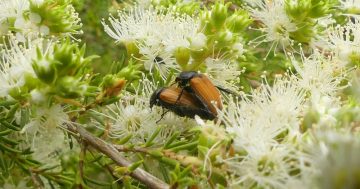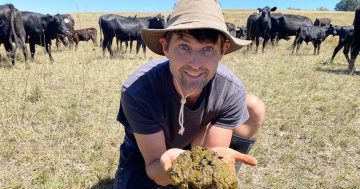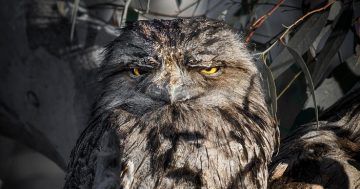The Canberra Times is celebrating an absences of bush flies around Canberra and putting it down to dung beetles:
Mr Feehan, whose work with dung beetles has led him to be named an ACT finalist for the 2010 Australian of the Year, attributes this absence of flies directly to the uptake of dung beetles across regional NSW.
The dung beetle was introduced to Australia from 1969 to 1984 by a now disbanded CSIRO team that included Mr Feehan.
Let’s see how the summer goes.















